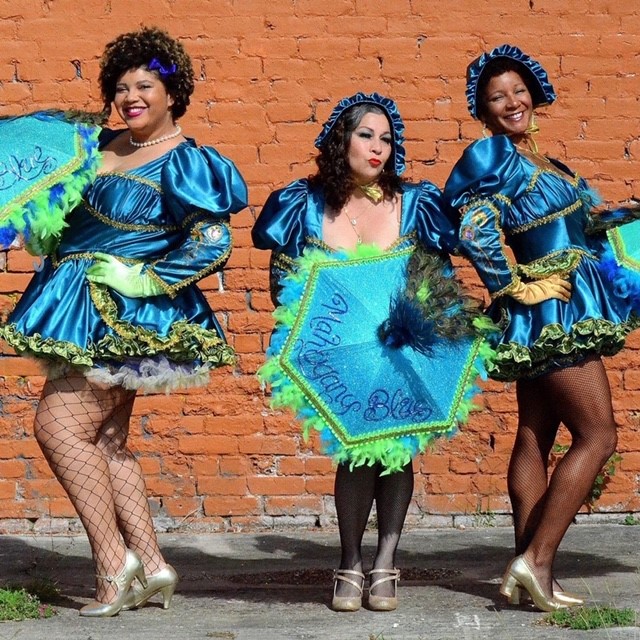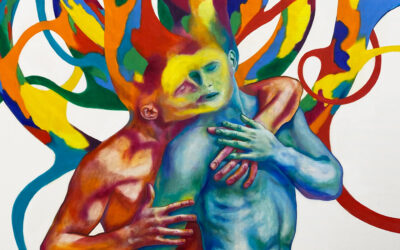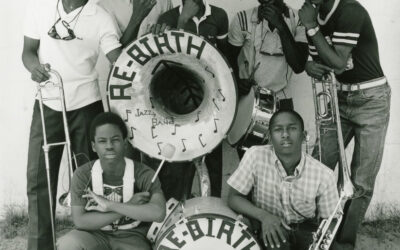A baby doll is a pretty, valuable, irreplaceable present that is usually passed down from generation to generation. In New Orleans, LA there’s a group of women who are viewed the same way.
I
n 1912, African American sex workers in the redlight district were told they could not celebrate Mardi Gras due to segregation. A group of ladies, now known as the Baby Dolls, decided race would not stop them. They started their own trend by marching and dancing in parades with the clothes on their backs. Anita Oubre, 55, and founder of the Mahogany Blue Baby Dolls, explained how the history of the baby dolls was daring and brave.
“[They] defied the norms… by dressing in short dresses with garters on their legs and cigars in their mouth and strutted onto the streets of Mardi Gras. This was taboo at the time. It was a political statement and a powerful one at that,”Oubre said.

Photo Credit: Henry York
Friendship, community, and good times are the words that Oubre used to describe her baby dolling experience. She performed with two baby dolls at a music event only months before being invited to join the Black Storyville Baby Dolls in 2015. It wasn’t about how they dressed for her, it was about their confidence. One of the traits she’s adopted from the group is their freedom.
“I was intrigued not only by their look, but by their spirit. A few months later I received a phone call and was asked to baby doll,“She said, “It’s given me confidence about myself that I did not have before. Once I put on the dress, I transform into someone who is confident, precious, sexy, and worthy. It is a great feeling”.
Oubre stayed with the Black Storyville Baby Dolls for two years before becoming a Mother Doll in 2018. She founded the Mahogany Blue Baby Dolls with the goal of continuing a legacy that has uplifted Black women while expressing themselves to the fullest.
“Our mission is to promote self confidence in ourselves and our sisters, to celebrate our strong feminine selves, to uplift and encourage one another and be of service to our community,” Oubre said.
For some, Mardi Gras is exciting because of the trees engulfed in beads, floats of goddesses, and painted coconuts. But for members of the Baby Dolls, their tradition is the main focus. The group is known to pass the activity down to family members to keep it alive. Christina Bragg, 33, and a member of the Mahogany Blue Baby Dolls, explained that the legacy of the Baby Dolls is rooted in family.
“A mom passed this tradition onto her daughter that has passed the tradition onto her daughter. It’s become such a familial type of tradition… and it shows our young Black kids that this is something that Black people did. We kept this rich tradition alive, “Bragg said.
Bragg joined the Baby Dolls in 2018 after Oubre inspired her. She explained that Oubre taught her the history of the baby dolls because without it, there is no foundation. She found the Baby Dolls interesting because of how they highlighted sisterhood among Black women.
“It has really taught me the value of friendships and made me realize that women can depend on each other. It really strengthened the bond I have with other women and it’s important to have somebody in your life that’ll always be in your corner”, Bragg said.
Though the women have a strong sense of community and love amongst themselves, one thing that is crucial for a baby doll, is their appearance. Handmade dresses showered in exuberant designs. Silk white gloves that extend to the elbows. Fishnet stockings that show a little skin. Heels that put the sass into motion. These are the makings of Baby Dolls gear. Since the organization first started, the dresses have always been the main attention grabber. It is one of the main ways the Baby Dolls of today connect with the ones of the past.
“It is said they wore short dresses with bloomers, some of us wore garters and carried cigars. Other dolls are carrying on family tradition and they wear the bonnets like their family members and carry baby bottles. The spirit is something that is carried on through the years”, Oubre said.
Once the women get in the full gear, they waste no time dancing and having a good time. Sometimes they’ll march with bands and congregate with other members of the Baby Doll family on Mardi Gras day. The women do enjoy having fun, but their sisterhood doesn’t stop at their organization. Bragg explained that advocating for issues that affect Black women is one of the most rewarding parts about being a Baby Doll.
“We are starting to advocate about sex trafficking because you know it’s becoming more prevalent in New Orleans, especially among black women. We are trying to find a way to use our voice… to get more awareness out there. We already have people looking at us, so we’re going to use that for good”, Bragg said.
What’s most important to these women is the message they send to their community. From advocating about issues to expressing themselves, Bragg explained that Black women should know their worth.
“Be confident, be bold, and understand that you are so powerful. You can do anything and at the end of the day, you’re the one that they’re checking for,” She said.
Since Covid-19 is still a prominent condition for the public, Mardi Gras won’t be in full effect this year. The women plan to have more of a social media celebration. The Mahogany Blue Baby Dolls will meet at Oubre’s house in full Baby Doll gear. They’ll have a small, intimate, celebration. They plan to continue this tradition by marching in the footsteps of the ones that came before them and reminding Black women that they matter.



0 Comments